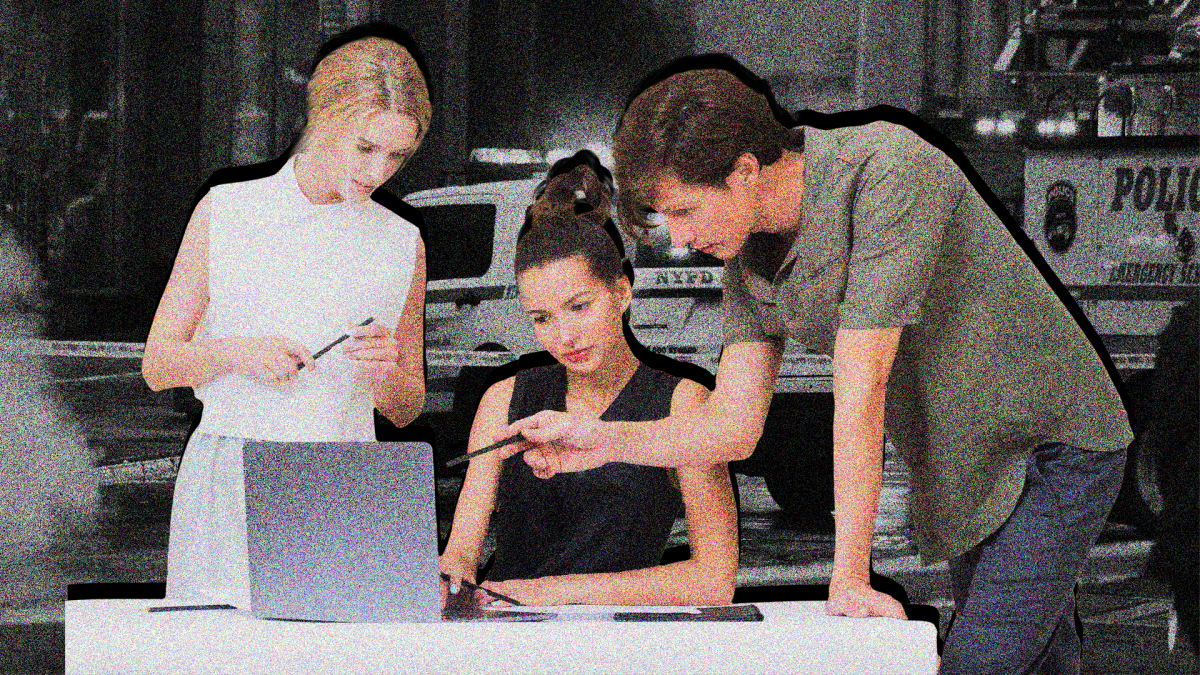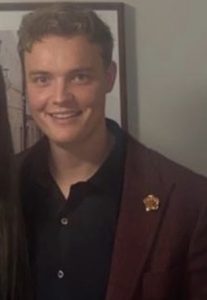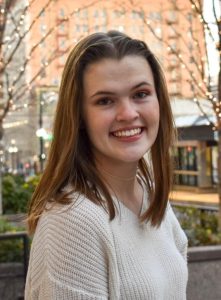Students at the University of Utah will be able to investigate another local cold-case murder during the spring of 2024.
Last spring, Eric Peterson led the U’s first-ever cold-case journalism class. The students investigated a series of Salt Lake City murders that targeted members of the LGBTQ+ community in the 1970s.
Peterson came up with the idea for COMM 5850: Cold Case Journalism when students expressed an interest in his professional fieldwork.
“I taught Digital Journalism a couple of times, and there were sometimes in the class where the stars kind of aligned, and I was working, or reporting something, and I was like, ‘oh, I’m just going to have the class help me investigate a real story,’” Peterson said.
Peterson found ways to connect the tools students were learning in digital journalism to live cases in the field.
“I noticed students really got into that and it was a really interesting experience,” Peterson said.
Peterson then pitched the idea to the school and COMM 5850 was born.
Students like Rhenick Edwards, a senior communication major, shared the same excitement for the course that Peterson alluded to when pitching the class.
Edwards urged students to look into taking the class by breaking the course down into three parts that all fall under the umbrella of “real-world experience.”
Field trip
The class’s one and only field trip was to Intermountain Forensics, where they talked to experts on what happens to the evidence after a case is deemed cold.
“We actually talked to a person who had a ton of evidence from different cold cases from the 70s and 80s,” Edwards said. “And right now, there are over 400 unsolved cold cases in Utah.”
Edwards said it was interesting to see the differences in forensic assessment from the 70s to today.
She added she felt that the police could’ve done more to solve the cold cases with the evidence they had when the murders happened.
“This class showed me that there may have been mishaps in what was going on with the Salt Lake City Police Department,” Edwards said. “It made me think if things weren’t being swept under the rug that it could’ve been solved at the time.”
Ben Williams – “The Gay Historian”
Each week, Peterson would have a guest come in who would in some way relate to the class. One of these guests was Ben Williams, who became known to the class as “the gay historian.”
“He had a journal and he would just document everything that he and his friends went through, and said, you know, ‘if there’s no one else that will document this stuff, I’ll be the first one to do it,” Edwards said. “So now he’s ‘the gay historian.’”
Williams picked a few of the documented experiences his friends and himself went through in the 1970s to illustrate the anti-LGBTQ sentiments that were prevalent back then.
Edwards said stories of Williams’ friends who went through “shock therapy” stuck with her.
Electroshocks were sometimes used in aversion therapy. Aversion therapy was a method used to treat disorders such as alcoholism, obsessive behavior and other addictions.
Until 1973 homosexuality was classified as a disorder, according to the JSTOR Daily. All the murders discussed in COMM 5850 happened within five years of 1973.
At the time, BYU was taking volunteers to go through electric aversion therapy in an attempt to physically shock homosexuality out of volunteers, according to ABC News.
“He knew people who went through shock therapy and the ‘reverse gay treatments’ and he wants to find evidence to show that was actually being pushed on people during the 70s,” Edwards said.
Williams’ goal is to expose how things may have been swept under the rug during the 1970s in Salt Lake when it came to the murders of LGBTQ+ community members.
The Final Project
The class had 12 students who were split into groups of four working on three cold cases from the 70s.
Each group focused on different things but came together at the end of the class to have group discussions on what they found.
The class’s final project was an article that was published in the Salt Lake Tribune on Doug Coleman, a gay man murdered in SLC in 1978. Each group had a unique role in the finished product.
“My group produced and edited the video that was posted with the article, another group talked to the justice system to have the case be reopened and the last group focused more on the history and writing part,” Edwards said.
Edwards said she enjoyed the student-first structure of the class.
“It’s not in a lot of classrooms that you get to work closely with your professors and look at him as a colleague as well,” she said. “We were all equals in that class; it was something different that any of my other college classes.”















RD Gerdes • Aug 14, 2023 at 7:48 am
I have a BA and an MA in Communication. I would have loved to have had a course like this. In college I worked as a loan collector and did a lot of ‘skip tracing,” looking for customers who have left and are in hiding…I always felt some of those skills would transfer over to being a PI or a volunteer investigator. Interesting article, interesting course!